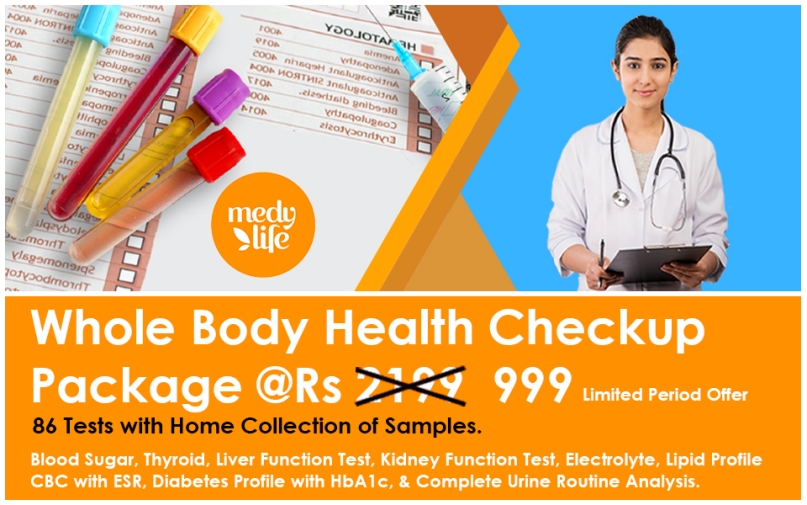
Dreams and Health: Can Dreams Predict our Health?
20-10-2018 | Posted By: Chhavi | 5372 View(s)
Dreams are fascinating, aren’t they? Almost everyone on this planet dream but what they dream about varies. Some people dream about mysterious creatures, while some have dreams about their loved ones. Some people have only one dream at night while some have multiple dreams. There are also some who don’t have any dream often. But do our dreams have any meaning? Yes, they have! Many researches have been conducted to understand why we dream and how our dreams affect our life. Even now many studies are going on to understand the concept of dreams. When it comes to our health, many experts believe that there is a connection between dreams and health. But what is that connection? Can dreams predict our health? Let us solve this mystery in this blog.
What is the Connection between Dreams and Health?
“The beginnings of diseases and other distempers which are about to visit the body must be more evident in the sleeping state.” (Aristotle, cited in Van de Castle, 1994)
“There are nerves coming to the brain from every part of the body, and they relay the signals of impending illness that the subconscious translates into dreams.” (Kasatkin, 1967, cited in Van de Castle, 1994).
Many famous scholars and psychologists believe that dreams could predict our health. Dreams and health have a strong connection. But how is it possible? Let’s know how.

The connection between your dreams and health
The human body and mind are complex. Since there are so many nerves coming to the brain from every part of our body, signals may be sent to warn about an illness. Many experts believe that dreams may be your subconscious translating these signals into dreams. This theory may seem highly controversial, but researches have been conducted that support the theory.
When an illness is first developed in the body, it can be detected prior to the conscious recognition of symptoms. For example, a blood test would be able to detect physiological signs of an infection before you even know you have an infection. As your body undergoes changes, your brain is able to detect them on a subconscious level and that is where dreams come into play. The content, intensity, and length of the dream are all essential to predict one’s health. Meaning, if you are having dreams that are lengthy and bizarre as well as stressful, then your body may be preparing you for an illness.
There are many other theories made to explain the connection between dreams and health. Well, you must have read many times that our subconscious plays an important role in our physiological health. Analysing dreams is a common practice to gain insight into fears and stresses that we suppress and not let them get into our consciousness. But can these fears also provide insight into our physical health?
According to Psychology Today, that is possible. In one of their brilliant articles “Do Dreams Predict Your Health?”, the concept of dreams predicting an illness “seems less radical if we first acknowledge the fact that detectable changes occur in our body at the onset of disease, prior to the presence of recognizable symptoms. These physiological changes are also detected by the brain on a subconscious level, and can be translated into ‘prodromal’ dreams…dreams that reflect the onset of an illness prior to the appearance of symptoms.”
Our body system is connected to our brain. For example, if you are dreaming about throat irritation then it can be a response to the immune system communicating to your body of a coming cold or imagery of a blow to the head may be a sign of migraines. These predictions which are subconscious can tap into your memory to cause trouble in the future. Many prodromal dreams leave the dreamer in a state of anxiety and distress.
Dreams usually occur during REM sleep, which pulls imagery from the surface of our memories. This is the stage where dreams occur right before we wake, which is why we are able to recall the next morning. Deep sleep is when our body recovers the most during the night. Going by that notion, remembering multiple dreams during the night could be a sign that you didn’t get much sleep, while not recalling any dreams, on the other hand, could imply plenty of deep sleep and physical well-being.
So there is a connection between dreams and health. But what are your dreams trying to tell you? Let us know one by one!
Dreams and Health: What do Dreams Say About your Health?
1. Nightmares
Some people have nightmares after watching a horror movie which is very normal. However, if you have frequent nightmares, then it might be a warning that something is wrong with your health. Many scientific studies have been conducted to know the connection between nightmares and health and it has been revealed that recurrent nightmares can be related to sleep apnea and heart disease.
When there is a disturbance in your breathing and heartbeat, your mind gets signal about this in the form of nightmare. So if you have been having nightmares, it is best to get a health checkup done to ensure everything is fine with you.
2.Multiple Dreams
Many people have two to three dreams during the night which they may find exciting but could signal a health problem. Having lots of dreams is common, but if you find yourself waking up in the middle of the night due to multiple dreams, it may be because you have anxiety.
Dreaming all the time – including short naps may be a sign that you are suffering from narcolepsy. This is a health disorder that makes you tired during the day and interrupts the process regulating your REM sleep. Hence your brain goes into the REM quickly, leading to dreams that start before they should. Mood swings, depression, and anxiety are also the causes of multiple dreams and midnight awakening.
3. No Dreams at All
Dreams and health are linked with each other. But what if you don’t dream at all? That means you may be depressed. Let us understand how.
Do you have difficulty recalling your dreams? You may be having sleep apnea. This sleep disorder occurs when your breathing is interrupted while you are asleep. Sleep apnea gets worse during REM Sleep (the stage in which we have vivid dreams). Hence this stage of sleep gets disrupted with frequent awakenings, which makes it hard to dream.
If you do not dream at all, then it may be because you are not spending a lot of time in REM (Rapid Eye Movement) sleep, which can be due to stress.
4. Bad Dreams
If you are having bad dreams like getting killed, falling from a roof constantly, then there is a chance that you have a vitamin B6 deficiency.

These bad dreams can also be a sign of depression and anxiety. Seeing anxious and bad dreams like being chased, losing their teeth, etc. can indicate a psychological problem.
5. Violent Dreams
Some people have dreams where they act aggressive or violent, or someone else behaves aggressively with them.
Neurological researches have shown that when patients first experience violent dreams, this could be a sign of diseases such as Alzheimer’s and Parkinson’s.
6. Dramatic Dreams
Many people have unusual or wired dreams like they are flying, have supernatural powers, etc. Having these dreams does not necessarily mean that you have a medical condition. However, excessive consumption of alcohol can increase the frequency of such dreams. Also, some health conditions such as Parkinson’s disease can make ur brain to have vivid dreams.
7. Pleasant Dreams

Not all dreams are bad, are they? Many people have dreams which are calm, pleasant and peaceful. If you have such dreams, it could mean that you are healthy and happy.
8. Remembering Every Dream
You may be proud of yourself that you remember each and every detail of your dream, but this could be a bad sign for you. A study in Frontiers in Psychology revealed that people who remember their dreams more clearly wake up a lot at night. So if you remember everything about your dream, it may be because you are not sleeping well. Lack of quality sleep can be a sign of a health problem.
9. Vivid Dreams
Dreams and health do have a strong connection. In 2015, a data was published on 18 women in Explore: The Journal of Science and Healing. The data was gathered from women across the globe, including Austria, the US, the UK, and Columbia. These women had vivid dreams that warned them of breast cancer. The dreams had a few characteristics which were common.
In descending order of frequency, the characteristics included a sense of conviction (94%); more intense, real, or vivid dreams (83%); an emotional sense of threat (72%), the specific words “tumor” or “breast cancer” (44%) and a sense of physical contact with the breast (39%).
In a majority of these cases, women visited doctors and were able to provide the location of suspected tumours which led to a diagnosis.
If you have been having such dreams, consult a gynaecologist.
10. Dreams that Wake you Up Early Morning
If your dreams make you a morning riser, it can be a sign of mood swings, depression, stress, and anxiety.
So now you know that dreams and health are kind of related to each other. If you have bad, unpleasant, or vivid dreams frequently, do not hesitate to consult a doctor. Also, get a health checkup done because it will help you stay aware of your health.


